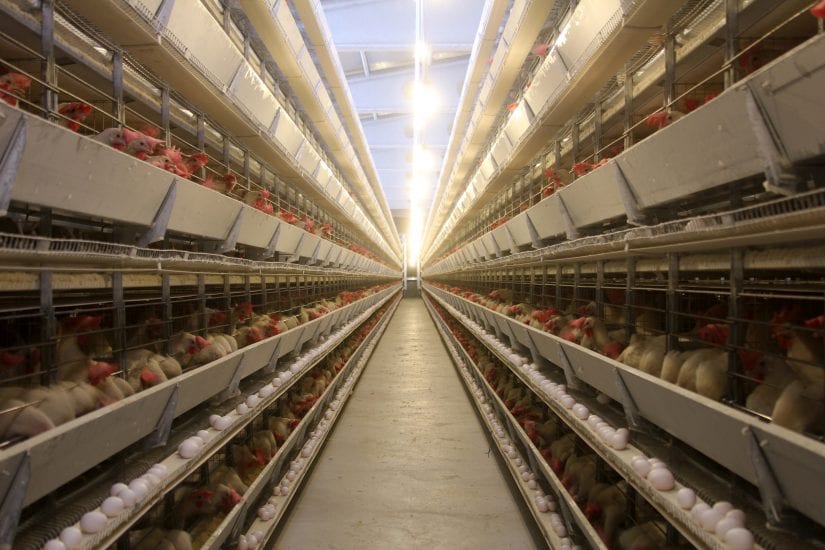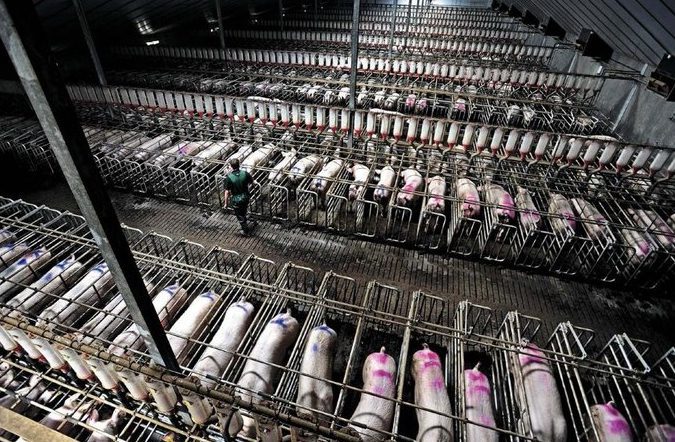Intensive farming is a system of farming in which the focus in placed on high product output with low production costs. Farming in Canada was not always intensive as we commonly see today.
Intensive farming began developing in the 1940s-1950s as a result of industrialization and urbanization. Farms had to increase their production in order to support a growing population. It was found that the traditional outdoor systems of raising animals did not scale up easily to increase production efficiently. So, confining animals indoors was the best way to increase production efficiently, and technology advancements occurring at this time helped the transition.
The move to indoor environments was beneficial in many ways: protection from harsh weather, reduced disease transmission, processes like feeding, watering and egg collection could be easily automated, and it reduced labour costs.
However, efficient production came at the cost of the animals’ well-being, as they were housed in very unnatural environments, such as in cages, crates and stalls.

How does intensive farming hurt animals?
Intensive farming can cause pain, suffering and distress in animals. Examples of suffering include:
- Aggressive behaviours such as fighting and feather pecking, which can lead to injuries, infections and death. This can be due to close confinement with other animals, and being housed in groups that are larger than what is natural to their species. This is common with pigs and hens.
- Painful sores and injuries from standing on concrete or wires their entire lives, such as with cows, hens, and pigs.
- Boredom and frustration from confinement in empty steel and concrete pens with no enrichment, such as gestation stalls and farrowing crates for pigs or battery cages for hens
- Stomach illnesses from eating food that is not natural for them, such as with cattle fed only grain, or ducks force-fed to make foie gras.

How can you help farmed animals?
Higher standards are needed to protect animals and give them a life worth living. We need your help to tell farmers and politicians that animal lives matter!
- Subscribe to our action alerts to be notified when you can help speak for farmed animals
- Help change laws and standards for farmed animals on farms
Subscribe to FarmSense
Are you passionate about farm animal issues? FarmSense is delivered four times a year and includes news about farm animal welfare, research and updates on what the BC SPCA is doing to help further farm animal welfare in Canada.
The BC SPCA uses your personal information to update you on our work for animals as well as for advertising and analytics purposes. More information on uses and how to opt-out can be found in our Privacy Policy.
